Refactoring into Chain of Responsibility from Legacy Code
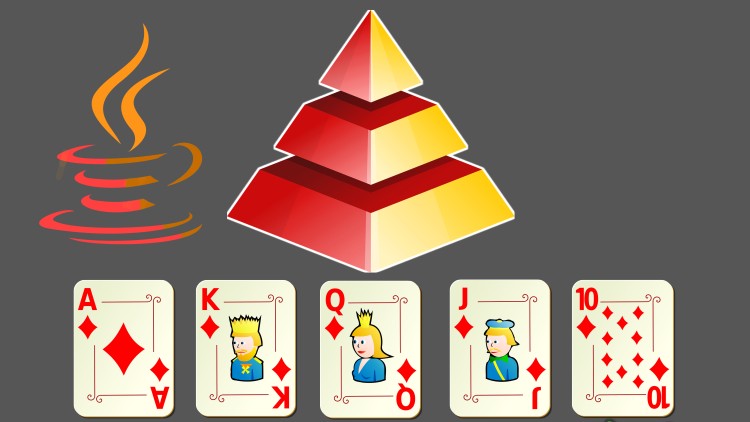
Why take this course?
🚀 Course Title: Refactoring into Chain of Responsibility from Legacy Code
🎓 Course Headline: Replace nested & messed-up if-else statements with Chain of Responsibility using Refactoring Pyramid & Clean Code rules.
Introduction to the Journey: Welcome to the second module of our series dedicated to transforming Legacy Code into Clean Code! In this course, we'll embark on a refactoring adventure that will guide you through replacing complex and nested if-else statements with the elegant Chain of Responsibility Design Pattern. Although this pattern isn't explicitly covered in the classic refactoring books like "Refactoring" by Martin Fowler, the core principles from these texts form the foundation of our approach to refactoring into Chain of Responsibility. 📚✨
Why This Refactoring? Legacy code often becomes a tangled web of conditional statements that are hard to maintain and extend. This leads to a deeper nesting, which in turn makes the codebase harder to understand and modify. By refactoring your code to use the Chain of Responsibility pattern, you can simplify complex conditionals, improve readability, and create a more flexible and scalable design.
Course Objective: The primary goal of this course is to assist you in disentangling your code from deeply nested if/else statements. We'll demonstrate how to perform these changes live, providing you with the opportunity to apply refactoring techniques alongside Włodek Krakowski, our experienced instructor. This module specifically focuses on implementing the Chain of Responsibility Design Pattern as part of our refactoring journey.
What You Will Learn:
- Merge If Statements
- Merge Nested If Statements
- Extract Methods
- Replace Temp with Query
- Move Methods
- Inline Methods
- Extract Class / Extract Delegate
- Extract Interface – Rename Methods & Variables
Throughout the course, you'll engage in live coding sessions where you'll apply these techniques to refactor legacy code into a more maintainable and clean design. You'll see firsthand how refactoring not only improves code readability but also sets the stage for new features and requirements. 🖥️👷♂️
Hands-On Learning: During the course, you will download the source code and work alongside Włodek Krakowski as he guides you through each refactoring step. This hands-on experience ensures that you not only understand the theory behind refactoring but also gain practical skills that you can apply to your own projects.
Homework for Real-World Impact: To solidify your learning, the course includes a homework assignment. You'll be tasked with implementing additional requirements within Clean Code versus within Legacy Code, showcasing the stark difference between code that has undergone Preparatory Refactoring and code that hasn't. This will give you a tangible understanding of the benefits and impact of refactoring legacy code. 🏫✍️
Conclusion: By the end of this course, you will have a deeper understanding of how to approach the daunting task of refactoring complex legacies into clean, maintainable codebases. You'll be equipped with the knowledge and tools necessary to apply the Chain of Responsibility pattern effectively, which will help you in your journey towards cleaner, more efficient code.
Enroll now and take the first step towards mastering refactoring and maintaining Clean Code! 🚀💼✨
Course Gallery
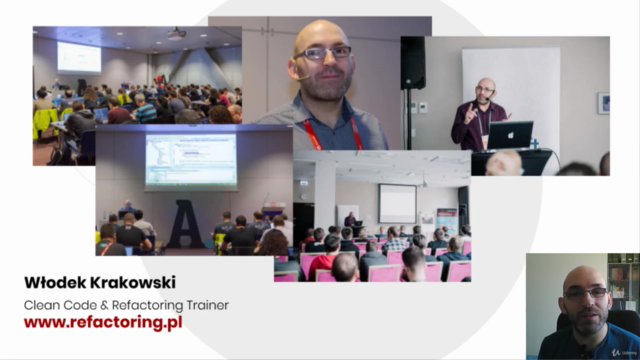
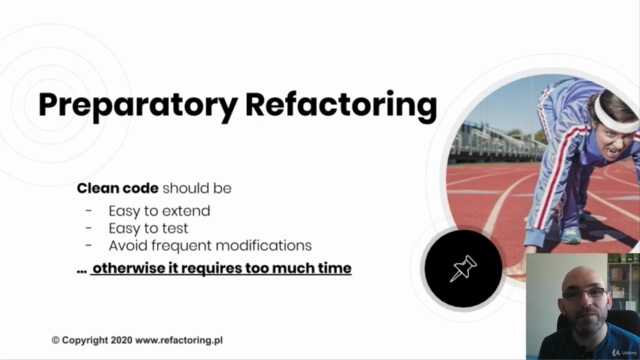
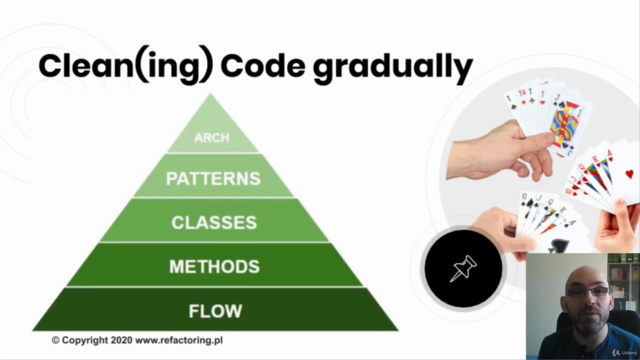
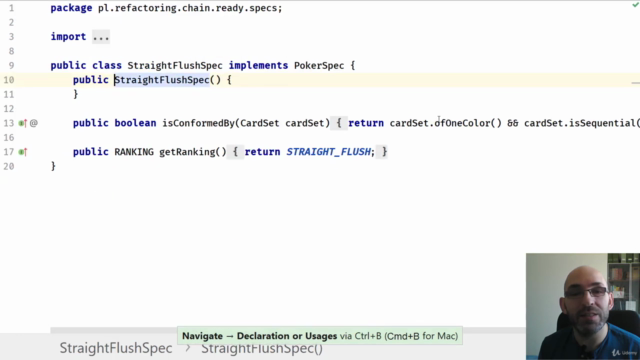
Loading charts...